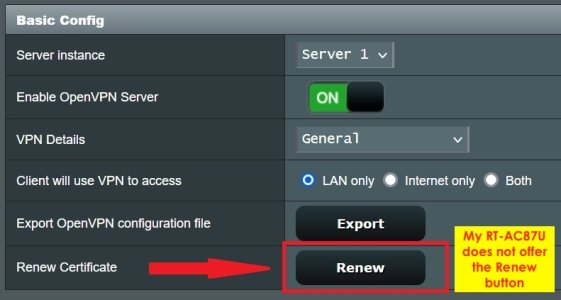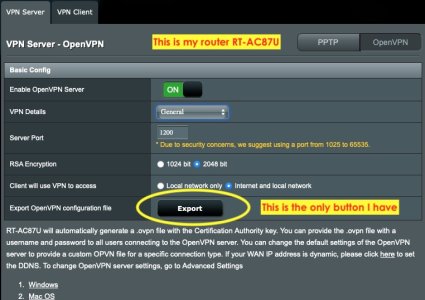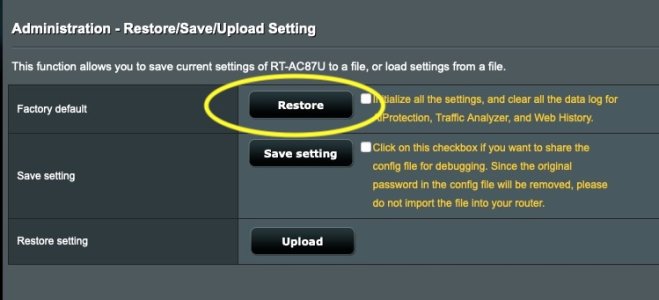Ok, back to the OP's quest for a solution....I have just run across this same issue after updating the OpenVPN app on my phone to 3.4.1. I have spent time discussing this with OpenVPN, who were very helpful and ASUS who were not helpful. I have the ASUS RT-AC87U and am running the latest firmware. After realizing that the 3.4.1 version of the OpenVPN app's default security level was causing the "You are using insecure hash algorithm in CA signature." error, I went into my router and changed the Encryption cipher to AES 256 CBC in combination with using SHA256 for the HMAC Authentication and then created a new client.opvn file. However that did not work.
The OpenVPN tech looked at my log files from the phone and found the following.. .. "[Jan 17, 2024, 13:38:47] EVENT: WARN TLS: received certificate signed with SHA1. Please inform your admin to upgrade to a stronger algorithm. Support for SHA1 signatures will be dropped in the future"
This is the same thing @RMerlin said in his reply to the OP. The OpenVPN tech said... "In the case of your server (my router), the encryption cipher and the hash are using secure options, but the signature in the certificate is using a weak one." This matches what the error msg says from the OP ( @Volkis ) and on my phone. My router does not offer me the "Renew Certificate" button like some ASUS router screens I've seen on the internet while searching for a solution. It doesn't seem to matter which ciper or HMAC authentication I use, when applying my changes and then clicking Export, the file is signed with SHA1 and the new OpenVPN app rejects it. Sure I can use the lowest security option in the phone app but I would rather solve this issue instead and I don't have time right now to look for a new router and set it up as I'm about to go on travel and wanted to use the VPN on my phone. - ugh.
Does anyone know a way to solve this?
The OpenVPN tech looked at my log files from the phone and found the following.. .. "[Jan 17, 2024, 13:38:47] EVENT: WARN TLS: received certificate signed with SHA1. Please inform your admin to upgrade to a stronger algorithm. Support for SHA1 signatures will be dropped in the future"
This is the same thing @RMerlin said in his reply to the OP. The OpenVPN tech said... "In the case of your server (my router), the encryption cipher and the hash are using secure options, but the signature in the certificate is using a weak one." This matches what the error msg says from the OP ( @Volkis ) and on my phone. My router does not offer me the "Renew Certificate" button like some ASUS router screens I've seen on the internet while searching for a solution. It doesn't seem to matter which ciper or HMAC authentication I use, when applying my changes and then clicking Export, the file is signed with SHA1 and the new OpenVPN app rejects it. Sure I can use the lowest security option in the phone app but I would rather solve this issue instead and I don't have time right now to look for a new router and set it up as I'm about to go on travel and wanted to use the VPN on my phone. - ugh.
Does anyone know a way to solve this?
Attachments
Last edited:




